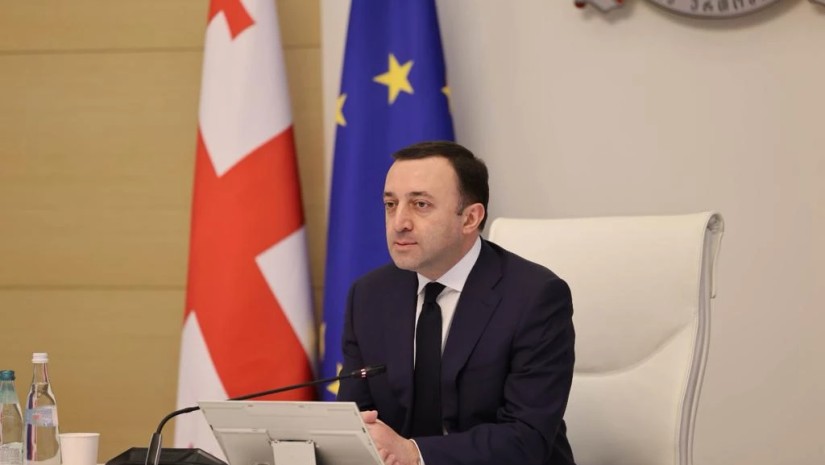Understanding Societal Ideologies: A Comprehensive Dive

Within this rapidly evolving governmental landscape, understanding the various ideologies that influence our community is more crucial than ever. The rise of unaffiliated voters marks a shift from conventional party loyalties, leading individuals to question whether we are entering a different political era. As the countdown to the upcoming polls begins, the electorate and political observers alike are contending with a myriad of urgent concerns that could redefine our representative principles and electoral practices.
From the increasing worries regarding election integrity and manipulated districting to the fresh figures appearing on the governmental landscape, every factor adds to a complex weave of ideologies and strategies. As the younger vote poised to become a game changer and the specter of rumors of impeachment lingering in the background, it is obvious that the political climate is tense. As we delve into these issues, it is important to analyze the implications of every development, from the shifts in power inside Washington to the influence of technology and false information in molding how the public views issues.
The Rise of Independent Voters in Politics
In the past few years, the electoral landscape has seen a significant shift with the rise of voters identifying as independent. These individuals are gradually dismissing mainstream political parties in favor of a more individualized approach to politics. This trend reflects a growing discontent with the two major parties, as many voters seek candidates who align with their individual ideals rather than adhering strictly to party lines. The attraction of independence lies in its offer of freedom and representation, allowing voters to prioritize concerns that matter most to them.
As we approach the forthcoming election, independents are poised to play a crucial role in determining the results. Their numbers are steadily growing, making them a important demographic that candidates need to engage. Political strategists are starting to understand that winning the support of independents can be just as vital—if not more so than rallying the base of party loyalists. https://diigo.com/0zi9h9 are thus adapting their strategies, tailoring messages to attract these pivotal voters by responding to their issues and supporting practical solutions.
The growing influence of independents is transforming the dynamics within the political establishment and the broader political spectrum. This shift calls for new partnerships and strategies among politicians who must now adapt to a more fragmented electoral landscape. As independents continue to assert their presence, they challenge the conventions of political partisanship, signaling a likely transformation in how elections are contested and won. The expanding importance of this group emphasizes a desire for a governance structure that represents a more multifaceted set of principles and perspectives.
2025 Vote Insights and Obstacles
As the countdown to the 2025 vote accelerates, understanding the environment of political loyalties is crucial. The growth of the independents may represent a move towards a new partisan landscape, where conventional party loyalty is reassessed. Electorate are progressively seeking candidates who align with their beliefs rather than exclusively aligning with established party platforms. This trend raises questions about the success of existing political strategies and whether candidates will engage to this increasing demographic.
The youth vote is more and more looking like a significant influence for the impending polling. With a significant stress on issues like environmental issues and fairness, Gen Z voters are likely more energized and aware than at any time. Candidates will need to reach out with these voters and respond to their issues genuinely. Failure to connect with this critical group may lead to overlooked opportunities and significant repercussions for those in power.
However, with the excitement of a new electoral season comes the difficulty of misinformation and election interference fears. The increase of social media platforms has made it more feasible for misleading narratives to circulate, obscuring voters' capacity to discern truth from fiction. As political parties plan on how to most effectively relay their communications, addressing these challenges will be crucial to ensuring a just and clear voting system that maintains the integrity of the democratic process.
Exploring Power Relations in Washington
In the ever-evolving landscape of D.C., power dynamics are constantly shifting, influenced by a multitude of factors including public opinion, party alignment, and tactical decisions. https://output.jsbin.com/qepetorema/ of independents has brought a new variable into this equation, undermining traditional party loyalties and driving both major parties to rethink their strategies as they approach the upcoming election. As the composition of voters change and the issues at the forefront of political discourse shift, candidates will need to alter to these transformations to maintain importance and support.

As partnerships form and dissolve, the concept of collaboration across party lines is put to the test. Emerging alliances in Congress often come about in unexpected ways, where strange bedfellows find agreement on certain matters, only to separate on different matters. This intricate web of relationships shapes legislative outcomes, creating a landscape where collaboration and conflict coexist. The ongoing discussions around funding issues highlight these tensions, revealing who will benefit or lose in the impending financial decisions that will impact various sectors and the electorate.
The influence of external elements, such as changes in international relations and social movements, further complicates the political arena. As voices calling for sustainability initiatives and social justice rise, the renewal of activism signifies a growing demand for accountability from those in power. This renewed engagement from the youth vote, combined with a focus on fake news and campaign strategies, underscores the critical need for transparency and effectiveness in governance. Handling these power dynamics requires not only political acumen but also a keen understanding of the electorate's needs and the ever-present potential for change.
